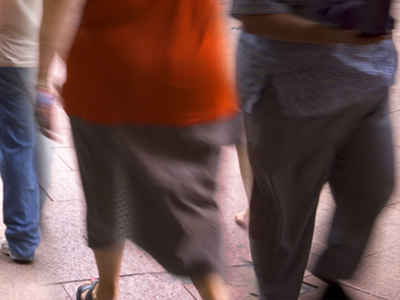
Alarmed by a tripling of obesity rates among U.S. children over the past 30 years, the Institute of Medicine and the National Research Council issued a report recommending policy initiatives to trim the fat from America’s youth.
Saying the child obesity problem cannot be solved at the federal level, the two groups counsel state and local officials to impose their own soft drink taxes, tax “junk food,” limit access to television and video games in after-school programs, replace public school vending machines with water fountains, open school playgrounds to the general public, build more sidewalks and bicycle paths, and require restaurants to list calorie counts on their menus.
The report takes another step down the road to government control of lifestyle choices. The more successful the current administration is in displacing private health insurance with a taxpayer-financed public option, the more coercion to adopt healthy ways of living one can expect—stop smoking, exercise regularly and eat only the foods recommended by those who know what’s good for you.A public health insurance program will deny coverage to no one and will charge everyone the same premium, including those with pre-existing conditions, such as diabetes or obesity. There are only a few ways of keeping the program’s costs from careening completely out of control. Government can regulate the types of medical procedures for which health care providers can apply for reimbursement; limit the amounts of those reimbursements; and use selective taxes and other government powers to “encourage” individuals to avoid behaviors the so-called experts link to illness and injury.
With private health insurance, by contrast, insurers have incentives to charge premiums that reflect the probability that individual policyholders will submit claims. Smokers pay more for health and life insurance than nonsmokers, and overweight people, especially those with histories of adult-onset (Type 2) diabetes, high blood pressure or elevated cholesterol levels, pay more than those with a clean bill of health.
With risk-based insurance premiums, the consequences of smoking and overeating are not social costs, paid by everyone, but private costs paid largely by those who overindulge.
Selective taxes are poor instruments for controlling behavior. Taxing soft drinks may cause people to drink less soda, but some will substitute other high-calorie drinks. Taxing Big Macs may reduce cash register sales, but some will simply eat more loaded pizza, or make cheeseburgers at home.
The state of Maine already tried this. During the 10 years the so-called snack tax was in effect, the state’s adult obesity rate doubled, from 10 percent to 20 percent.
What Nobel laureate James Buchanan calls the “meddlesome preferences” of those who want you to behave as they do now threaten our personal freedoms. Lifestyle choices should not be ceded to government.
--William F. Shughart II is a Senior Fellow at The Independent Institute in Oakland.

